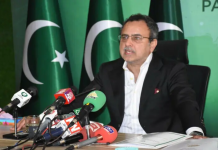No country in the world has made as much money from transfers over the last decade as Portugal yet the heartland of super-agent Jorge Mendes has still struggled to turn eye-watering profits into success on the pitch.
According to a FIFA report last month to mark the 10th anniversary of the Transfer Matching System (TMS), the platform created to record player transfers, Portuguese clubs boast a positive transfer balance of around 2.5 billion euros.
Between 2011 and 2020, some 15 percent of the most expensive transfers in the world came from the Portuguese league, which this season has three teams in the Champions League for the first time since 2017 but has not had a winner since Porto triumphed under Jose Mourinho in 2004.
“The sums involved in these transfers can be explained by Portugal’s role as a bridge between South America and the major European leagues,” Loic Ravenel, researcher at the CIES Football Observatory, told AFP.
The FIFA report says the route from Brazil to Portugal is the most travelled in the world over the last 10 years for players being transferred between clubs, with 1,550 players disembarking in Europe via Portugal, a country with a population of barely 10 million people.
The example of Brazilian international Eder Militao, who was bought in 2018 by Porto from Sao Paolo for seven mllion euros and sold, less than a year later, to Real Madrid for 50 million, is a clear demonstration of how lucrative these transactions can be.
At the centre of it all are Portuguese agents, who have become “extremely influential” due to their “detailed knowledge of their markets in South America, Portugal and the major European Leagues”, says Ravenel.
Mendes, perhaps the most powerful football agent in the world, is renowned for earning enormous amounts of money for lubricating deals between Portugal and Europe’s elite clubs.
Between 2011 and 2020, Portuguese agents made 320 million euros from transfers, which places Portugal as the fourth highest country in the world for intermediary costs.
“The presence of agents is growing in Portugal,” said Emanuel Medeiros, founder of the Global Alliance for Integrity in Sport (SIGA), who is worried about their increasing influence over players who are sometimes “still amateurs and minors”.
And yet while the big three Portuguese clubs — Sporting Lisbon, Benfica and Porto, in that order — occupy the top three spots for profits made from transfers, the economic model appears to benefit neither their sporting ambitions nor their financial needs.
“It is a league of debt because the budgets are based entirely on the transfers of players and if the expected sales do not arrive, the losses are immediate,” says Ravenel.
The reduction in income caused by the Covid-19 pandemic saw Benfica experience its first financial losses last season since 2012/13 while the accounts of Sporting, who haven’t won the title since 2002, are also in the red.
Porto are expected to announce profits after several years spent under the constraints of Financial Fair Play.
“In Portugal there is no centralisation of television and commercial rights, which would bring other sources of income and a better balance in the league,” says Medeiros.
“In order for Portugal to be more competitive, its clubs would have to manage to keep some of their players but the difference in wealth has grown so much in recent years, especially compared to teams like Manchester City or Paris Saint-Germain, the gap is now huge,” Ravenel adds.
















